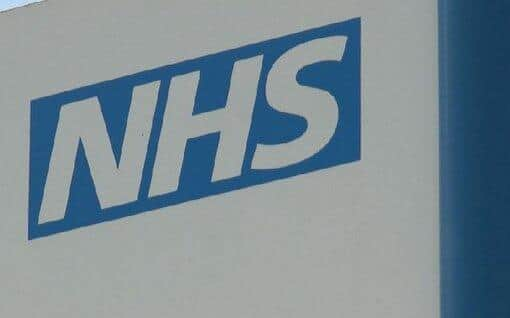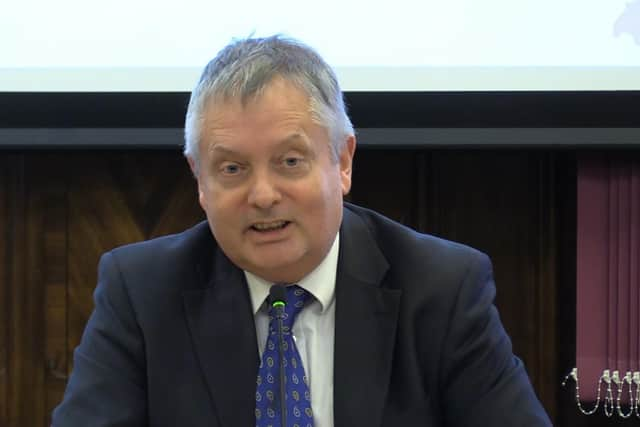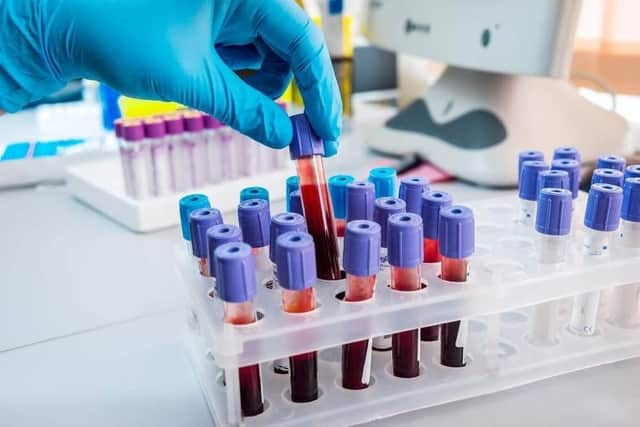Hospital bosses ask manager to "reflect" on claims consultants are silencing junior staff over pathology plans
and live on Freeview channel 276
As the Local Democracy Reporting Service (LDRS) revealed last month, more than two dozen consultants from two of the county’s hospital trusts complained about remarks from Mark Hindle, the managing director of the Lancashire and South Cumbria Pathology Collaboration.
He was speaking at an NHS webinar in April about ongoing work to create a centralised facility to test all routine blood, urine and other samples – taken from across the region – on a single new site in Samlesbury, near Preston.


Advertisement
Hide AdAdvertisement
Hide AdAsked about the biggest challenge he had faced in attempting to deliver the £31m programme, Mr. Hindle said that it lay in being able to have “a meaningful and positive engagement” with staff.
He later added that it might be necessary to “segment” employees during the consultation process into the plans, “so that the voices of some of our more senior colleagues, or perceived senior colleagues – for example, consultants – do not intimidate the voices of the majority of our workforce from putting their opinions forward”.
Mr. Hindle also suggested – in what he said were “very honest” comments – that there was sometimes a “clinical domination of the agenda, rather than allowing everybody to have a voice and everybody’s voice to be heard and influence the priorities”.
His contribution to the webinar sparked a furious reaction, with a rollcall of consultants from Lancashire Teaching Hospitals NHS Foundation Trust (LTH) and Blackpool Teaching Hospitals NHS Foundation Trust (BTH) writing to the pathology collaboration board to say that they had been left with a “significant lack of confidence” in the management leading the project.


Advertisement
Hide AdAdvertisement
Hide AdThey said that their efforts to help develop the new service had been “deprecated on a national stage”.
After the the contents of the letter emerged, Mr. Hindle said he had not intended to “cause any offence”.
Now the LDRS can reveal that the consultants have received a response from the pathology collaboration board and the chief executives of the Lancashire hospital trusts involved in the programme, in which the leaders seek to distance themselves from Mr. Hindle’s comments – and say that he has been asked to “reflect” on the points he made at the webinar.
The letter, dated 24th June, states: “Firstly, we very much welcome your commitment to collaboration and collaborative working across Lancashire and South Cumbria. We also recognise the significant effort that Pathology Consultants and all pathology staff have given to finding you more efficient ways of working.


Advertisement
Hide AdAdvertisement
Hide Ad“The comments made by the Pathology Managing Director do not represent our views as CEOs [chief executive officers], nor indeed the views of the Pathology Collaboration Board. These comments were made in a personal capacity and not as a representative of Lancashire and South Cumbria.
“The Managing Director has been asked to reflect on the comments made and the forum in which these comments were expressed. As CEOs we are keen to re-engage with all laboratory staff concerning the next steps in the exciting work around pathology collaboration.
There is a strong commitment from the Pathology Collaboration Board to support all colleagues in developing a new model of provision for the future and thank you for your continued support and dedication in providing the highest levels of service delivery.”
The correspondence was signed by Kevin McGee, both in his capacity as the chair of the Lancashire and South Cumbria pathology service board and the chief executive of LTH; Aaron Cummins, the chief executive of University Hospitals of Morecambe Bay NHS Foundation Trust; Martin Hodgson, interim chief executive of East Lancashire Hospitals NHS Trust; and BTH chief executive Trish Armstrong-Child; – the four trusts that are part of the pathology collaboration. Caroline Donovan, chief executive of the mental health services provider, Lancashire and South Cumbria NHS Foundation Trust, also put her name to the letter.
Advertisement
Hide AdAdvertisement
Hide AdThe signatories conclude by saying they look forward to “new and better ways of working together” with pathology staff.
The LDRS approached Mr. Hindle for a response and he repeated the comments made at the time his remarks from the webinar were made public.
“There has been a concerted effort over a number of years to engage with clinical colleagues and the clinical director continues to engage with the leads from across all disciplines to design the future delivery framework and clinical model.
“The continued input of the consultant body into this programme of work is extremely valued and it was not my intention to cause any offence. The concerns that have been raised in the letter will be responded to directly.”
Advertisement
Hide AdAdvertisement
Hide AdThe legal process to transfer pathology staff from their existing employers to LTH – which is set to host the new non-urgent testing hub – had been due to take place on 1st July, but work on the project was paused back in April to allow for further staff engagement.
Under any new centralised arrangement, urgent samples would continue to be processed at individual hospital sites across Lancashire and South Cumbria. However, routine tests – such as those ordered by GPs – would be transferred to Samlesbury for analysis.
